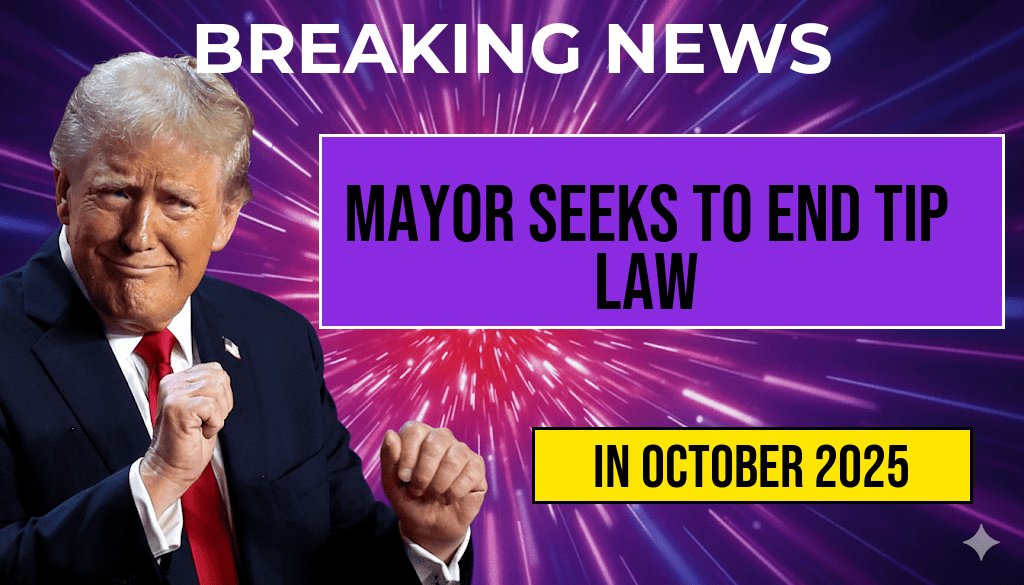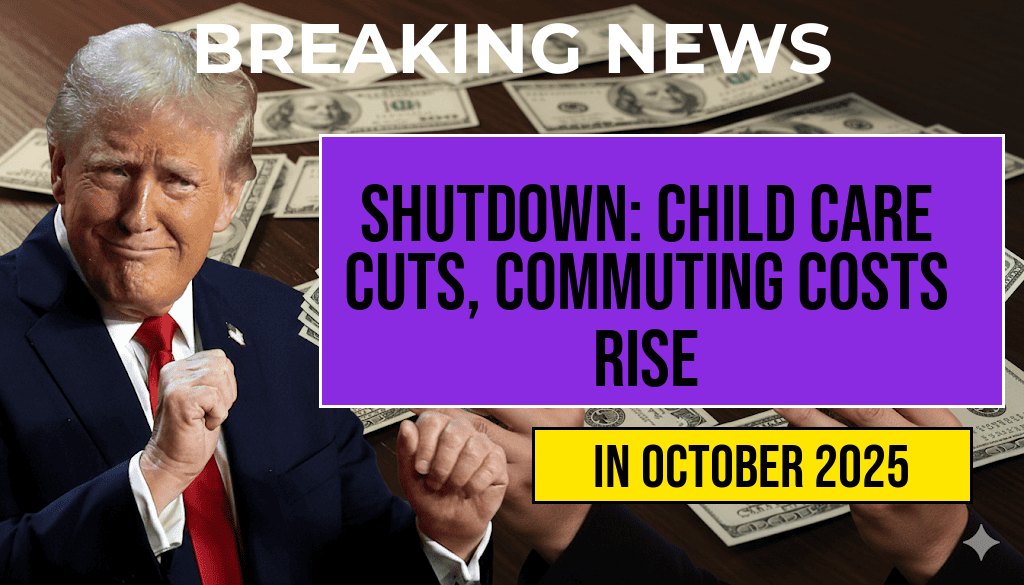In an ambitious move to tackle a staggering $1 billion budget deficit, the mayor of the city has proposed the elimination of the current tip law, which has been a longstanding aspect of the local economy. This law, which allows restaurants and service providers to pay their employees below minimum wage, has drawn criticism for perpetuating income inequality and inconsistent earnings among workers in the service industry. The mayor’s proposal aims to create a more equitable wage structure while simultaneously addressing the city’s pressing financial challenges. Supporters argue that abolishing the tip law could lead to fairer compensation for service workers, while opponents caution that it could drive up costs for consumers and potentially harm local businesses already struggling in the wake of the pandemic.
Understanding the Tip Law
The tip law currently permits employers to pay tipped employees a base wage significantly lower than the standard minimum wage, with the expectation that tips will make up the difference. This system is prevalent in many states, but the mayor contends that it disproportionately affects low-income workers, particularly in the city where the cost of living has soared in recent years.
Economic Implications of the Proposed Change
- Impact on Workers: Many service industry workers rely heavily on tips to supplement their income, and the proposed law could lead to a more stable wage structure. With the elimination of the tip law, workers would receive a consistent paycheck, which could help them manage their finances more effectively.
- Consumer Costs: Opponents of the proposal warn that abolishing the tip law could result in higher menu prices as restaurants adjust their pricing structures to accommodate increased labor costs. This could deter consumers and negatively impact the local economy.
- Business Viability: Small businesses, in particular, may face challenges adapting to the new wage requirements. Critics argue that the change could lead to layoffs or reduced hours for employees as businesses struggle to manage their payroll expenses.
Community Reactions
The mayor’s proposal has sparked a lively debate within the community. Proponents of the change argue that it is a necessary step toward ensuring that all workers receive a livable wage. “Everyone deserves to earn a wage that reflects their hard work and effort,” said a local advocacy group leader. “This change could help lift many service workers out of poverty.”
Conversely, local restaurant owners express concern about the potential fallout. “Our margins are already thin,” said a restaurant owner, “and this could be the straw that breaks the camel’s back. We need to find solutions that support workers without jeopardizing the businesses that employ them.”
Potential Alternatives
In light of the division surrounding the proposal, some community members are advocating for alternative solutions that could address the budget deficit without overhauling the tip law entirely. Suggestions include:
- Gradual Phase-Out: Some propose a gradual elimination of the tip law rather than an immediate repeal, allowing businesses time to adjust.
- Subsidies for Tipped Workers: Providing financial support or tax breaks for service workers could help mitigate the impact of wage changes.
- Increased Training Programs: Offering training for workers to transition into higher-paying jobs in other sectors could create more job stability.
Next Steps for the Mayor’s Proposal
The mayor plans to hold a series of public hearings to gather feedback from residents, business owners, and workers. These sessions will provide a platform for stakeholders to voice their opinions and concerns regarding the potential elimination of the tip law. The mayor’s office has indicated that the feedback gathered during these hearings will play a crucial role in shaping the final proposal.
Conclusion
As the city grapples with its budgetary crisis, the proposed elimination of the tip law represents a significant shift in how service workers are compensated. The outcome of this proposal could set a precedent not only for the local economy but also for similar cities facing similar challenges across the nation. As discussions unfold, the community remains divided, weighing the potential benefits of a more equitable wage system against the realities of economic sustainability for local businesses.
For more information on the implications of tipping laws, visit Wikipedia or read about the economic impact of minimum wage reforms on Forbes.
Frequently Asked Questions
What is the current budget deficit that the mayor is addressing?
The mayor is aiming to address a significant $1 billion budget deficit.
What law is the mayor proposing to eliminate?
The mayor is proposing to eliminate the tip law, which regulates gratuities in the service industry.
How does the tip law impact the city’s budget?
The tip law affects revenue generation and financial allocation within the city, contributing to the current budget challenges.
What are the potential consequences of eliminating the tip law?
Eliminating the tip law could lead to changes in wages for service workers and may impact their overall income.
How is the public responding to the mayor’s proposal?
The public’s response to the proposal is mixed, with some supporting the move to address the budget deficit and others concerned about the implications for workers in the service industry.








